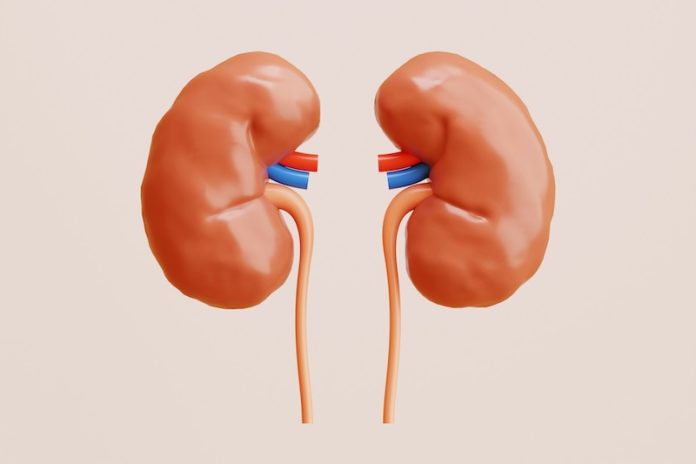
Scientists at UCLA have made an important discovery that could change how we treat chronic kidney disease (CKD), a condition that affects over one in seven adults in the U.S. and more than 800 million people around the world.
The research, published in Science Translational Medicine, shows that a little-known protein called type 5 collagen plays a big role in how much scarring—or fibrosis—develops in the kidneys after injury. This breakthrough could lead to a new way to slow or even prevent the disease from worsening in people most at risk.
Chronic kidney disease happens when the kidneys are damaged over time due to things like high blood pressure, diabetes, or even repeated kidney stones. As the kidneys try to heal from this damage, they sometimes build up too much scar tissue.
This scarring prevents the kidneys from doing their job—filtering waste from the blood and balancing fluids—which can eventually lead to kidney failure. At that point, patients need dialysis or a kidney transplant to survive.
Until now, there’s been no treatment that directly targets the scarring process in the kidneys. But Dr. Arjun Deb and his team at UCLA may have found a promising path forward. Their research focused on type 5 collagen, a protein that, although only a small part of scar tissue, seems to control how that tissue forms and holds together.
The scientists started by looking at large-scale genetic data from the UK Biobank, a health database tracking more than 1.5 million people. They noticed that people who had lower levels of a gene called Col5a1—which tells the body how to make type 5 collagen—were more likely to develop chronic kidney disease over time. That clue led them to test the idea in mice.
When the researchers injured the kidneys of mice with low Col5a1 levels, they found that those mice developed much worse scarring and lost kidney function faster than mice with normal levels.
This confirmed that type 5 collagen is essential for keeping scar tissue organized and strong. Without enough of it, the scar tissue becomes weak and messy—like a badly woven fabric.
The body seems to notice when the scar is weak and tries to fix it by making even more scar tissue. This process is triggered by receptors called integrins—specifically a type called αvβ3—on cells called fibroblasts. These cells sense the weak scar and respond by overproducing more tissue, leading to a harmful cycle of increasing damage.
To stop this cycle, the team tested a drug called Cilengitide. This drug blocks integrin signaling and was originally developed for cancer treatment. Though it didn’t work well against cancer, it was found to be safe in human trials.
When the UCLA team gave Cilengitide to mice with low type 5 collagen, it slowed down the scarring and kidney damage. Importantly, the drug had no effect in mice with normal Col5a1 levels, suggesting it could be used as a precision medicine—targeted only at people who truly need it.
The next goal is to develop a blood test that can measure type 5 collagen levels in people. This would help doctors identify which patients are most likely to develop serious kidney scarring and could benefit from the drug. Since kidney disease usually progresses slowly, there’s a good window of time to catch the disease early and intervene before it becomes life-threatening.
Dr. Deb believes this approach could also apply to other organs where scarring causes major problems, like the liver or blood vessels. His team is already looking into this possibility.
Though this treatment is still in the early stages and hasn’t yet been approved for use in humans for kidney disease, the idea of repurposing a safe, existing drug for a new use is exciting. It could speed up the process of getting help to patients who need it most.
In short, this discovery shows how a small protein, previously overlooked, could become the key to slowing or stopping kidney failure—and perhaps even change how we treat fibrosis in other organs too.
If you care about kidney health, please read studies about how to protect your kidneys from diabetes, and drinking coffee could help reduce risk of kidney injury.
For more information about kidney health, please see recent studies about foods that may prevent recurrence of kidney stones, and eating nuts linked to lower risk of chronic kidney disease and death.
The research findings can be found in Science Translational Medicine.
Copyright © 2025 Knowridge Science Report. All rights reserved.



